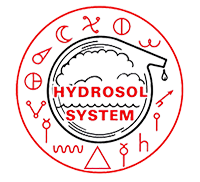- Home
- Services
- Industrial Services
- Air Compressors
- Ammonia Condensers and Stills
- Blast Furnaces
- Caster Segments
- Chemical Manufacturing
- Cooling Tower / Chillers
- Condensate Lines
- Continuous Caster Water Systems
- Economizer
- Electric Arc Furnace
- Evaporators
- Extruders
- Heat Exchangers
- Hydraulic Oil Reservoir
- Industrial Boilers
- L.M.F.
- Reactor Vessels
- Reheat Furnace
- Steam Lines
- Stainless Steel Tanks
- Vacuum Furnaces
- High Purity Cleaning
- Industrial Construction
- Pharmaceutical Construction
- Clean Steel Gels
- Industrial Services
- Company
- Trade Associations
- Document Repository
- Ask Expert
- Contact Us
Ask Expert
How clean should my hydraulic system oil be?
High pressure servo or proportional valved systems should have an I.S.O. 15/13/11 cleanliness standard. Cartridge and solenoid valved systems should have an I.S.O. 17/16/13 cleanliness standard.
Why should I clean my oxygen piping?
During the fabrication, metal shavings and cutting oil may be left in the piping. Hydrocarbons react violently when they are exposed to oxygen which may lead to fire or explosion. Metal shavings and rust blooms are another source of ignition.
What is the difference between water treatment and chemical cleaning?
Water treatment is a process of continuously monitoring the integrity of an industrial water system. Different chemicals are added to the water to control calcium carbonate, iron and other elements Water treatment is expensive and is primarily used to slow down the inevitable build up of elements. Chemical cleaning is a more aggressive process that is designed to remove existing contamination in water systems. Strong concentrations of chemicals are circulated through the cooling systems. Most cooling systems can be cleaned and restored to optimal operating levels in 4-24 hours.
Do I need to disassemble my equipment for chemical cleaning?
In most cases, the chemicals can be circulated through the main supply and return feeds. This allows us to clean the equipment in place and elimimnates disassembling the equipment.
Why should I clean my hydraulic piping?
Modern hydraulic systems are very sophisticated and their components are engineered to operate under precise conditions. Construction debris, slag or iron particles can potentially plug or scar various components. The down-time to replace a hydraulic valve can cost thousands of dollars. By chemically cleaning and oil flushing your hydraulics, the debris is removed from your piping ensuring a clean system.
What is passivation?
Passivation is the spontaneous formation of a hard, non-reactive surface film that inhibits further corrosion.
Why should I passivate?
Most pipe is made from recycled sources. It is typically ingrained with dissimilar metals from the melting and extruding processes. Dust, debris and other miscellaneous contaminants are also typically present on piping surfaces. These factors all lead to pre-mature corrosion. Passivation removes these impurities and creates a barrier that prevents corrosion.
How often should I passivate?
We recommend the derouging and/or passivation of high purity steam and water systems annually.
What is rouge or rouging?
Rouge is typically a red-brown ferric oxide found in WFI or steam systems. It can be easily removed. In severe cases, an oxide build-up may be present. This requires more aggresive cleaning procedures.
What is Gel Passivation?
Gel Passivation is ideal for large stainless steel surfaces. A gel agent is added to the derouge or passivation chemical and is sprayed on the surface in need of passivation.
How long does it take to passivate?
Most piping systems can be passivated in an 8-12 hour day. Larger piping systems may require additional time to set up hoses and equipment.
Contact Us
Please fill out the form below to request a quote. Feel free to give us a call at 330-678-2181.
We are available to discuss your specific project needs in detail to help find the best solution for your business.

